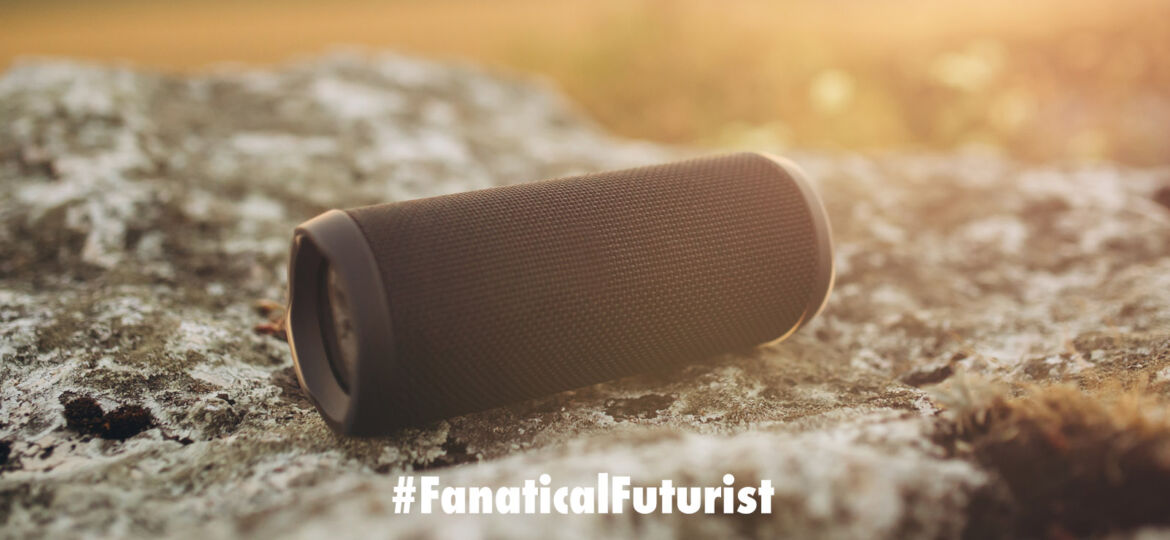
WHY THIS MATTERS IN BRIEF
IOT devices will be crippled if they all need batteries to run, but by harvesting energy from the air we can place sensors anywhere and everywhere.
Interested in the future and want to experience even more?! eXplore More.
Semiconductor firm Wiliot has demonstrated the first ever sticker sized Bluetooth sensor tag that also incorporates an ARM processor powered by the air. Yes, you heard it right – powered from the air. And it’s not the first product to be powered from the air – we’ve already seen battery-less smartphone concepts that harvest energy from sound and air, batteryless wifi products, and other products emerge recently. There’s even an entirely new air based battery system from MIT that makes energy from the air, all of which means that our reliance on batteries, for some products at least could one day come to an end. In Wiliot’s case their tag scavenges energy from the ambient radio frequencies in the air using a technology called Backscatter Energy that I’ve discussed before.
“We believe that disposable electronics based on battery-free, low-cost systems are the foundation for future Internet of Things systems. We are on the edge of dramatically changing the way products are made, how they are distributed, where and when they are sold, and how they are used and recycled,” said Tal Tamir, Wiliot CEO, and co-founder, who should also be paying special note to companies making Bio-Batteries, that generate electricity from bacteria, to power IoT sensors and other things – this is by no means a one horse race! And when it’s combined with an intelligent nanobot spray we now have a pathway to make every dumb object smart.
“Re-cycling the radiation around us to power sticker size sensors can enable new ways for consumers to interact with products that were previously not feasible. Products can share when they are picked up, their temperature, or when they need to be replenished. Without batteries or other high-cost components, tags have unlimited power and lifespan, so can be embedded inside of products that were previously unconnected to the Internet of Things.”
But how does it work? Well surprisingly simply. The novel and truly impressive chip, that is the size of a postage stamp, features a Wiliot chip glued to a simple antenna printed on plastic or paper.
This tiny Bluetooth device can authenticate the proximity of a product by transmitting an encrypted serial number by using what Wiliot calls their “breakthrough in nanowatt computing.” It can then proceed to communicate with any device enabled by Bluetooth Low Energy.
Needless to say, the real-life applications for this minuscule yet powerful chip are near endless. From Bluetooth tags to track consumer goods to upgrading information on tags or packaging, to several at home Internet of Things uses, and even communicating with washing machines to ensure clothes “never turn pink,” it seems there is nothing this little device can’t do.
“Wiliot’s strategy for battery-free Bluetooth transponders, which sense and communicate without needing specific action by consumers, is very relevant to Avery Dennison’s intelligent label strategy,” explained Francisco Melo, VP & GM, Global RFID, Avery Dennison. “We believe in a future where every item will have a unique digital identity and a digital life, benefiting both consumers and brands, with relevant and contextual information. We see this as an extension to our world-leading RFID solutions, enabling consumers to connect with products through multiple smartphones and IoT devices from end to end.”
But perhaps the most important quality of this novel device is the severe reduction in production and therefore also sale costs. After all, in the end, it all comes down to economics and since Wiliot’s revolutionary device eliminates most of the components associated with traditional Bluetooth, the reduction in costs could be equally incredible.

















